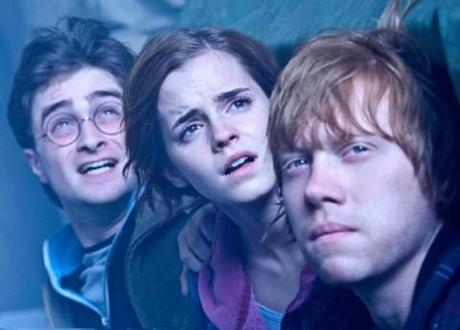
Still from Harry Potter and the Deathly Hallows, Part 2. Photo Credit: WarnerBros publicity.
The background
At St Andrews University, an academic conference is taking place to discuss J K Rowling’s Harry Potter series, about a boy wizard who attends a magic school. It will be the first conference of its kind to view the books as literary texts, and is called A Brand of Fictional Magic: Reading Harry Potter as Literature, reported The Telegraph. Over 60 academics will attend, discussing everything from Chaucer to C S Lewis. Rowling’s books have sold over 300 million copies. Some argue that the books merit study; others are mystified.
A fertile area of study?
The conference will look at, said the University’s website, how Rowling combines fantasy and school stories; how she uses “folkloric archetypes and mythopoeic symbolism,” and what her social and religious messages are. It will also look at the way she explores intellectual empathy. The organiser, John Patrick Pazdziora, was quoted on The Telegraph: he said that the area was a fertile one for study. John Granger, author of The Deathly Hallows Lectures, said, quoted on the BBC, that he took “exception to the unexamined and misinformed assumption that the books are ‘light on literary merit.’”
A good writer?
Novelist and critic Amanda Craig said that whilst Rowling was no stylist, she did write with “brilliant clarity.” Anna M Blanch published the abstract of her lecture online, which traced Rowling’s debt to children’s writer E Nesbit. “I don’t think it is an overstatement to say that J.K Rowling has changed the face of Literature in English,” she says on her blog.
Turning the literary world topsy turvy
But Sara Rainey of The Telegraph was not impressed: “studying Harry Potter as a work of literature turns the literary world upside-down. If Dumbledore and Hagrid can be granted the status of Don Quixote and Hamlet, it’s alarming to contemplate what’s next. A dystopian interpretation of A Very Hungry Caterpillar? The Twilight series as an A-level text?”
An academic interpretation of A Very Hungry Caterpillar
In fact, Rainey’s fear has already happened: Tomcat in the Red Room calls it a “phantasmagoric bodyshock horror story that focuses on the tenets of extreme gluttony and one creature’s psycho-compulsive desire to consume the world around him.” The blog claims that Eric Carle’s beloved children’s book was influenced by Edgar Allan Poe and H P Lovecraft, and speculates whether the caterpillar’s hunger comes from withdrawal or childhood trauma. “Most shocking, however, is the book’s horrific dénouement in which (spoilers ahead…) the Caterpillar descends into a life of abject reclusion, shutting himself away for an undisclosed period of time before an act of eclosion which sees an entirely different creature emerge from the now empty shell of our hero’s grossly disproportionate and outsized body.”

